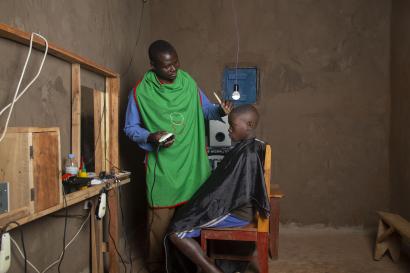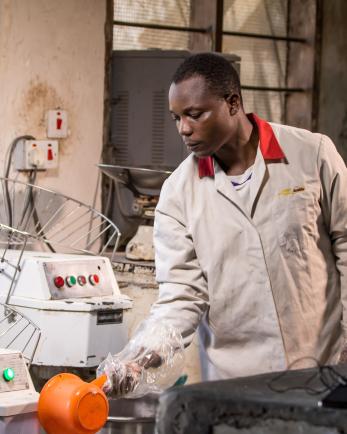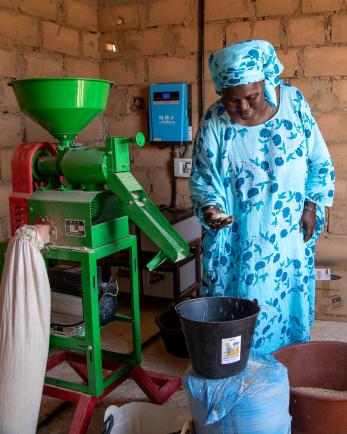Green livelihoods

Clean energy can be a catalyst for economic opportunities that are inclusive, resilient, and low-carbon. As the demand for productive, renewable energy technologies grows, there is a need for a skilled workforce to match it, from engineers and energy auditors to battery storage specialists and project managers. According to Power for All's 2019 census, decentralized renewable energy solutions, including mini-grids, solar for households and businesses, and systems to power machinery and appliances, employ as many people as the traditional utility power sector in key emerging and developing markets like India, Kenya, and Nigeria. The International Energy Agency predicts that clean energy will generate 14 million jobs in Africa by 2030.
We support the growth of businesses providing clean energy products and energy services and promoting more sustainable technologies and practices across the market systems we engage in. From manufacturing of clean cooking appliances and installation of solar systems to the provision of energy-as-a-service encompassing lighting, power, cooling, and electric vehicle charging, we actively promote inclusive, private sector-led growth.
A pivotal facet of Energy 4 Impact’s strategy to unlock green economic opportunities revolves around support for women. While women represent half of the world’s population, their participation in the workforce is lagging behind men’s — due in part to a disproportionate lack of higher education opportunities, specialized skills, access to financing, land ownership and social norms that prevent freedom of choice and movement. Over the next 50 years, the transition to a green economy will usher in fresh employment opportunities, particularly in sectors like energy, agriculture and food processing, where women already have a strong presence. With equitable access to skills and resources, women have the potential to fuel economic expansion and reshape their communities.
Energy 4 Impact provides technological, business and financial mentorship to thousands of women entrepreneurs engaged in ventures such as manufacturing efficient cookstoves, retailing clean energy products and undertaking activities such as farming, fishing and agro-processing that thrive with improved energy access. This support amplifies their entrepreneurial capabilities, propelling them toward more lucrative roles in the formal economy.

